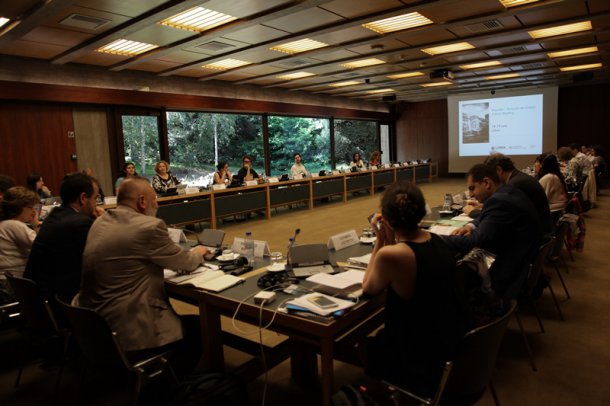Atenas: cultura e arte em tempos de incerteza
Published10 Jul 2015

No passado mês de Junho, dias 18 e 19, aconteceu na Fundação Calouste Gulbenkian o Encontro de Lisboa: Reunião de Organizações Independentes para a Mobilidade Artística e Cultural no Mediterrâneo e na América Central, uma iniciativa do Roberto Cimetta Fund em parceria com o Próximo Futuro, inserido no Observatório de África, América Latina e Caraíbas.
O encontro, restrito ao grupo de trabalho, cujo programa pode ser consultado aqui, abordou o conceito de mobilidade, as necessidades dos artistas destas regiões, os benefícios da mobilidade cultural para o diálogo da sociedade civil, os financiamentos existentes e necessários, entre outros temas.
Herman Bashiron Mendolicchio, um dos participantes no encontro,doutorado em História de Arte, Teoria e Criticismo pela Universidade de Barcelona e é investigador visitante no United Nations University Institute on Globalization, Culture and Mobility (UNU-GCM), publicou recentemente o artigo "Athens: arts and culture in times of uncertainty":
In a recent trip to the Greek capital, the city of Athens, I tried to understand the production, development and circulation of art and culture in “difficult times”. For that I met and talked to artists and professionals from cultural institutions, and I dipped in the atmosphere of the city today. If we exclude those central streets crossed by tourists, the Acropolis area and some spring nights in Gazi or Exarcheia, the general atmosphere of the city is definitely quite tense.
The economic crisis, which has evident effects on the daily life of the population, has certainly affected the art and cultural sector. At the same time, the points of view and perceptions regarding the vitality, the opportunities and the strength of the sector are quite discordant.
On one side, the cultural and artistic field have been ravaged by the savage cuts brought by a widespread depression. On the other side, the cultural and social life in the city of Athens seems to remain bright and effervescent. What are the reasons behind this apparent contradiction? From a certain point of view, the public funding in Greece has always been quite small and the sector is used to struggle to find the necessary funds to survive. According to some Athenians, the economic crisis has awakened, paradoxically, a sense of vitality, a rediscovered sense of relations, giving new and higher relevance to the social aspects of life. Other Athenians, nonetheless, perceive a deep depression in the sector, pointing at the example of many artists and cultural professionals who have migrated to other countries.
Artigo completo aqui
